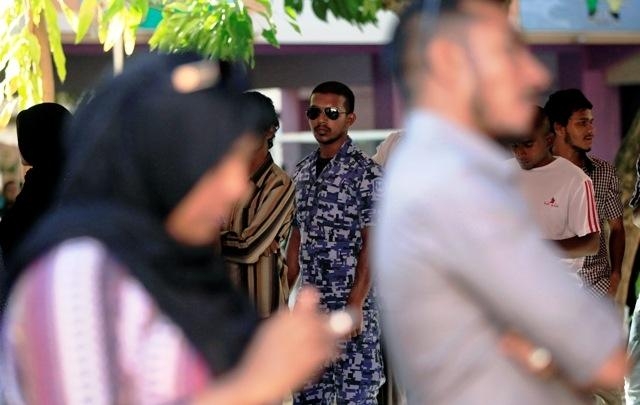
A report allegedly produced by the Police Intelligence Department has shown that 39 minors below the age of 18 have been included in the electoral register, by altering their date of births.
The introduction of the leaked report, marked “confidential,” states that it was produced by the Police Intelligence Department to determine if the alleged irregularities surrounding the first round of the presidential elections have any basis.
The eight-page report states that 39 individuals below the age of 18 were included in the 7th September 2013 voters’ list used by the Elections Commission, and that this was determined by crosschecking the list with the electoral register kept by the Commission and the records kept by the Department of National Registration (DNR).
Police Media Official denied any knowledge of an election-related police document being leaked to the public, but said that they are looking into a case of an alleged document currently circulating in social media.
The Police Act prohibits sharing of any official document produced by the Police Intelligence Department with anyone outside the intended sources.
The leaked police report also states that voters’ list published by the Election Commission had major inconsistencies with the records obtained through the live link from the Department of National Registration’s (DNR).
It states that 1,865 individuals, who have not yet been issued national identification cards, were also included in the Elections Commission’s voters’ list, that seven individuals, whose records do not exist with the DNR, were included in the list, and that names of 588 deceased individuals were also included in the list.
The report also states that 22 individuals were recorded twice under two different identification card numbers, that the date of births of 3,569 individuals included in the voters’ list did not tally with the DNR records, that the names of 1,627 individuals also did not tally with the DNR records, including addresses of 10,020 individuals, contained in the list.
It states that 747 individuals' genders were mixed up, and that, quoting one instance, the report states that the Thaa atoll ballot box in Male’ had received 517 ballots from female voters, a box which had 502 registered female voters. But the report stated that none of ballot boxes had received more votes than the registered number.
The leaked documents also noted that despite an order by the Elections Commission to their Indian employees to not attend office on polling day, the Police Intelligence Department had knowledge that the Indian nationals had been active in the Elections Commission office on 7th September.
The report notes that although there is no evidence to suggest that the registration inconstancies were deliberate, the resulting issues would have facilitated for a number of people to cast votes against the laws and regulations.
The report also notes that the inconsistencies noted in the report is evidence that there was a possibility of fraud during the election.
The report recommends that an audit be conducted of the servers connecting the laptops that were used in the polling stations, the Elections Commission database, and the other servers used to collect information for the elections.
The report also notes that the inconsistencies surrounding the first round of polls have caused the public to lose faith in the first round results, and thus, recommends the government and other institutions to guarantee the credibility of the first round polls, so that the public may have faith in the results of the second round of polls.
The report also recommends a recount of all the ballots of the first round of polls, to further establish public trust in the results.
Citing several inconsistencies surrounding the first round of polls, Jumhoory Party has filed a case in Supreme Court to annul the election results. The party has also won an order from the High Court, directing the Elections Commission to open their doors and allow the party officials to review the voters’ list used in the first round of polls, albeit having the list restricted to the grounds and authority of the Commission.